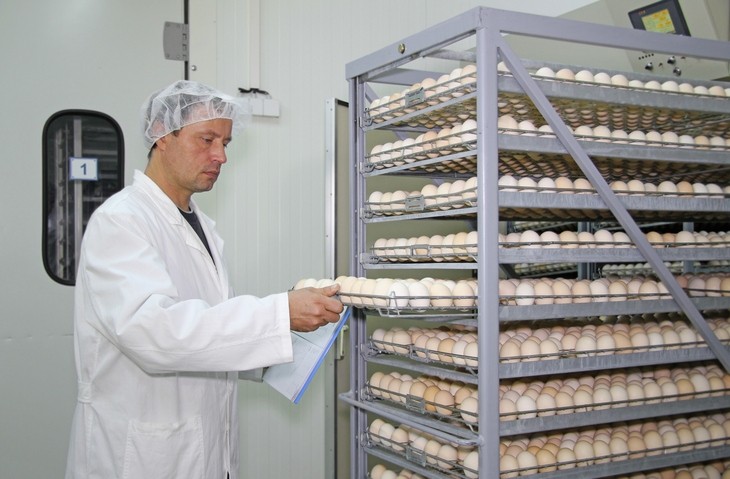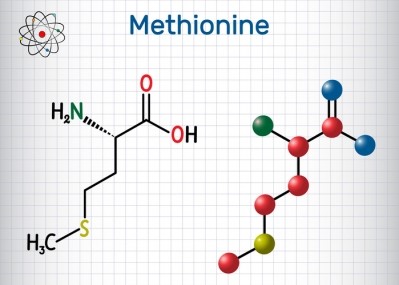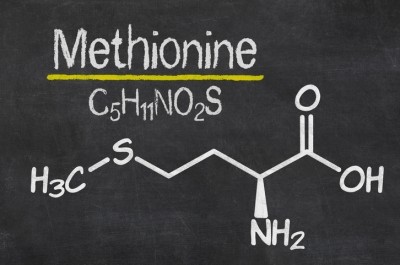Evonik invests in technology that identifies gender of chick embryos in the egg

In Germany alone, an estimated 40 million day-old male chicks from laying-hen hatcheries are killed annually, and the global figure is thought to be 3.2 billion, reported Evonik. Poultry farms do not rear the male animals because they can neither lay eggs nor put on sufficient flesh for meat production.
Evonik has invested in the firm, through its venture capital unit; it says it now holds a minority stake in the company, which is based in Leiden in the Netherlands. Singapore-based venture capital fund, VisVires New Protein, is co-leading the Series A investment round; Leiden University is also involved.
In Ovo was founded in 2013 by biomedical scientist Wil Stutterheim and biologist Wouter Bruins.
The scientists have developed a method for determining the sex in the egg that is said to be fast and reliable and that can be readily integrated into the workflow of large hatcheries. The technology is based on biomarkers identified by the founders; these allow the gender of chick embryos in the egg to be accurately determined early after fertilization. The technology is being combined with a system to process the large number of eggs to be screened.
The company said it plans to use the invested capital to develop the technology to the stage where it can be applied on the commercial scale in hatcheries. Over the next few months, the founders plan to work with German and Dutch partners to develop a prototype that can rapidly and reliably analyze and sort large quantities of eggs.
Evonik said the company's animal nutrition division will be strengthened through this expansion into the egg-producing sector.
"On top of that, what’s really important, is that we’re strengthening our business sustainably by supporting a solution to an ethical problem," a spokesperson for the German company told us.
In terms of whether Evonik is also interested in delving into the area of in-ovo nutrient delivery during embryo growth in the hatchery, she said the company has just taken this step to invest in In Ovo in order to support technology that would make the culling of male chicks unnecessary, and that was the reason Evonik decided to invest. "It is much too early to talk about further markets."
Strategic investment activities
Evonik plans to invest €100m in start-ups with innovative technologies and in specialized funds as part of its VC activities, with a focus on Europe, the US and Asia.
It currently has investments in more than 20 start-ups and venture capital funds.
In February 2017, we reported that Evonik had boosted its corporate venturing activities in Asia by taking a stake in a Chinese investment fund that focuses on the agriculture and nutrition sector.
The Chinese Hosen Capital Fund III, it said, has “direct relevance” for its own business activities, and the deal will allow it access to partnerships with innovative technology start-ups in the Chinese agriculture and nutrition industry.
"We expect a trend of modernization and professionalization in animal protein production in China and other Asian markets. Our investment brings us close to these innovations, which we want to leverage in our business," a spokesperson for Evonik told us back then.
Fund investments, said Evonik, are an essential component of its venture capital (VC) activities.
"The collaboration with VC funds and innovative start-ups complements our open innovation strategy and creates excellent opportunities for accelerating the development of new businesses and opening up new growth fields," said the spokesperson last year.
One of those it invested in, as part of a consortium in 2014, was US biotech developer, Algal Scientific, a company producing beta-glucan products via algal fermentation, said to support immune health for animals. Kemin bought that Michigan company’s beta-glucan technology in April 2017.
Evonik is also involved with High-Tech Gruenderfonds, a large German seed stage investor - some of the up and coming companies it finances target the animal nutrition or feed sectors including fodjan, a company producing web based software to optimize the feeding of livestock, and Subitec, a developer of a technology platform for the production of microalgae on an industrial scale. Parts of the biomass produced are used for food supplements, cosmetics and feed.
Another investment fund that Evonik holds a stake in is Pangaea Ventures – that fund was an early backer of FeedKind, the methane gas derived alternative to fishmeal developed by California based Calysta.
Proof of concept
Evonik said it generally maintains a minority share and typically invests up to €5m per firm.
The feed amino acid specialist said, typically, it invests in early-stage companies with an established proof of concept, usually in series A & B rounds in businesses that have already entered the market or are about to do so.
In terms of the criteria it applies when looking at firms with strategic investment in mind, Evonik said it wants an innovative, market-oriented technology company with a clear growth strategy, a highly motivated, focused management team, a clear, distinctive selling point and a secure IP position.
The German group said it brings strategic capabilities to the partnership including technological expertise and infrastructure, market experience and access, a global distribution network and expertise in patent strategies and on issues of industrial property rights.














